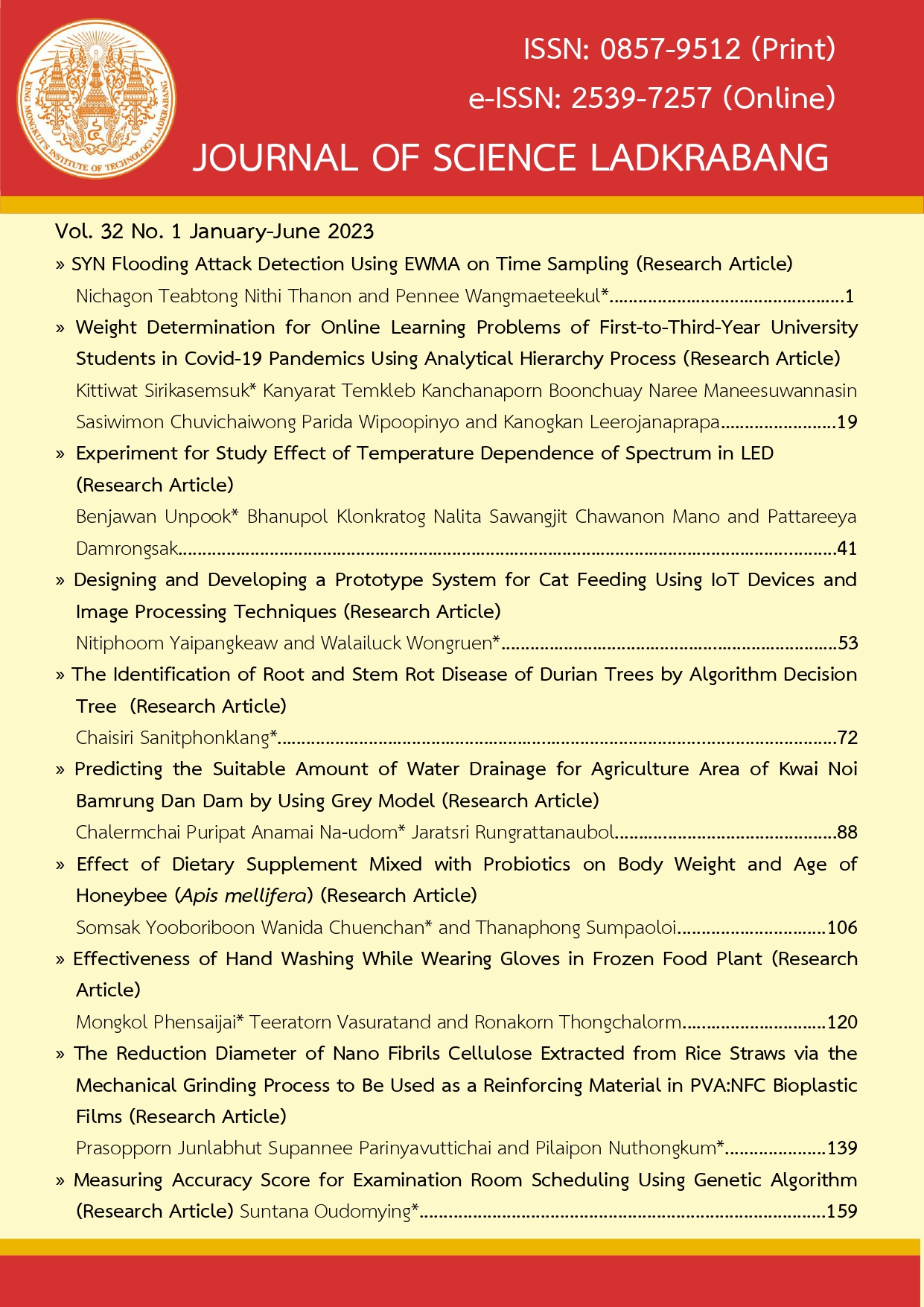Measuring Accuracy Score for Examination Room Scheduling Using Genetic Algorithm
Main Article Content
Abstract
Genetic Algorithm (GA) is a proper algorithm for solving room scheduling problems. Its output generated is conflict-free from constraints, unlike several machine learning algorithms for which constraints cannot be expressed. GA computes accuracy score of gene sequence which comply to the conflict constraints. Its disadvantage on processing time can be remedied by properly encoding chromosome that fits the computation. In this article, the metrics for measuring the accuracy score and committees’ effective time usage for seniors’ special project examination room scheduling. The output schedule by the algorithm is conflict-free such that each committee can attend the students’ presentation with no time-conflict. In particular, the output schedule satisfies the time required for the examination period. Effective time usage is defined as the total number of days required from each committee is minimized. The upper-bound and lower-bound of the schedule accuracy are calculated using the total number of days defined.
Article Details

This work is licensed under a Creative Commons Attribution-NonCommercial-NoDerivatives 4.0 International License.
References
Katoch, S., Chauhan, S.S. and Kumar, V. 2021. A review on genetic algorithm: past, present, and future. Multimedia Tools and Applications, 80(5), 8091-8126.
Gomez, F.J. 2003. Robust non-linear control through neuroevolution. The University of Texas at Austin.
Chen, R., Yang, B., Li, S. and Wang, S. 2020. A self-learning genetic algorithm based on reinforcement learning for flexible job-shop scheduling problem. Computers & Industrial Engineering, 149, 106778.
Borumand, A. and Beheshtinia, M.A. 2018. A developed genetic algorithm for solving the multi-objective supply chain scheduling problem. Kybernetes.
Khelifa, M., Boughaci, D. and Aïmeur, E. 2020. A new approach based on graph matching and evolutionary approach for sport scheduling problem. Intelligent Decision Technologies, 14(4), 565-580.
Chen, M.C., Goh, S.L., Sabar, N.R. and Kendall, G. 2021. A survey of university course timetabling problem: perspectives, trends and opportunities. IEEE Access, 9, 106515-106529.
Jha, S.K. 2014. Exam timetabling problem using genetic algorithm. International Journal of Research in Engineering and Technology, 3(5), 649-654.
Tan, J.S., Goh, S.L., Kendall, G. and Sabar, N.R. 2021. A survey of the state-of-the-art of optimisation methodologies in school timetabling problems. Expert Systems with Applications, 165, 113943.
Almeida, M.W.S., Medeiros, J.P.S. and Oliveira, P.R. 2015. Solving the academic timetable problem thinking on student needs. In 2015 IEEE 14th International Conference on Machine Learning and Applications (ICMLA) (pp. 673-676).
Raghavjee, R. and Pillay, N. 2013. A study of genetic algorithms to solve the school timetabling problem. In Mexican International Conference on Artificial Intelligence (pp. 64-80). Springer, Berlin, Heidelberg.
Sutar, S.R. and Bichkar, R.S. 2016. Genetic algorithms based timetabling using knowledge augmented operators. International Journal of Computer Science and Information Security, 14(11), 570.
Budiono, T.A. and Wong, K.W. 2012. A pure graph coloring constructive heuristic in timetabling. In 2012 IEEE International Conference on Computer & Information Science (ICCIS), 1, 307-312.
Avella, P., Boccia, M., Viglione, S. and Vasilyev, I. 2019. A local branching MIP heuristic for a real-world curriculum-based course timetabling problem. In International Conference on Mathematical Optimization Theory and Operations Research (pp. 438-451). Springer, Cham.
Habashi, S.S., Salama, C., Yousef, A.H. and Fahmy, H.M. 2018. Adaptive diversifying hyper-heuristic based approach for timetabling problems. In 2018 IEEE 9th Annual Information Technology, Electronics and Mobile Communication Conference (IEMCON), 259-266.
Sze, S.N., Bong, C.L., Chiew, K.L., Tiong, W.K. and Bolhassan, 2017. Case study: University lecture timetabling without pre-registration data. In 2017 International Conference on Applied System Innovation (ICASI) (pp. 732-735).

